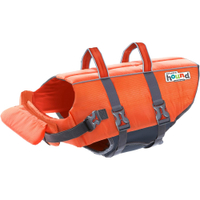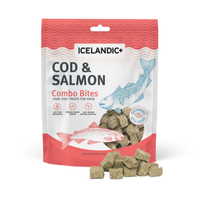A beginner’s guide to paddleboarding with a dog
If you love SUP and you love dogs, imagine the fun you can have paddleboarding with a dog.
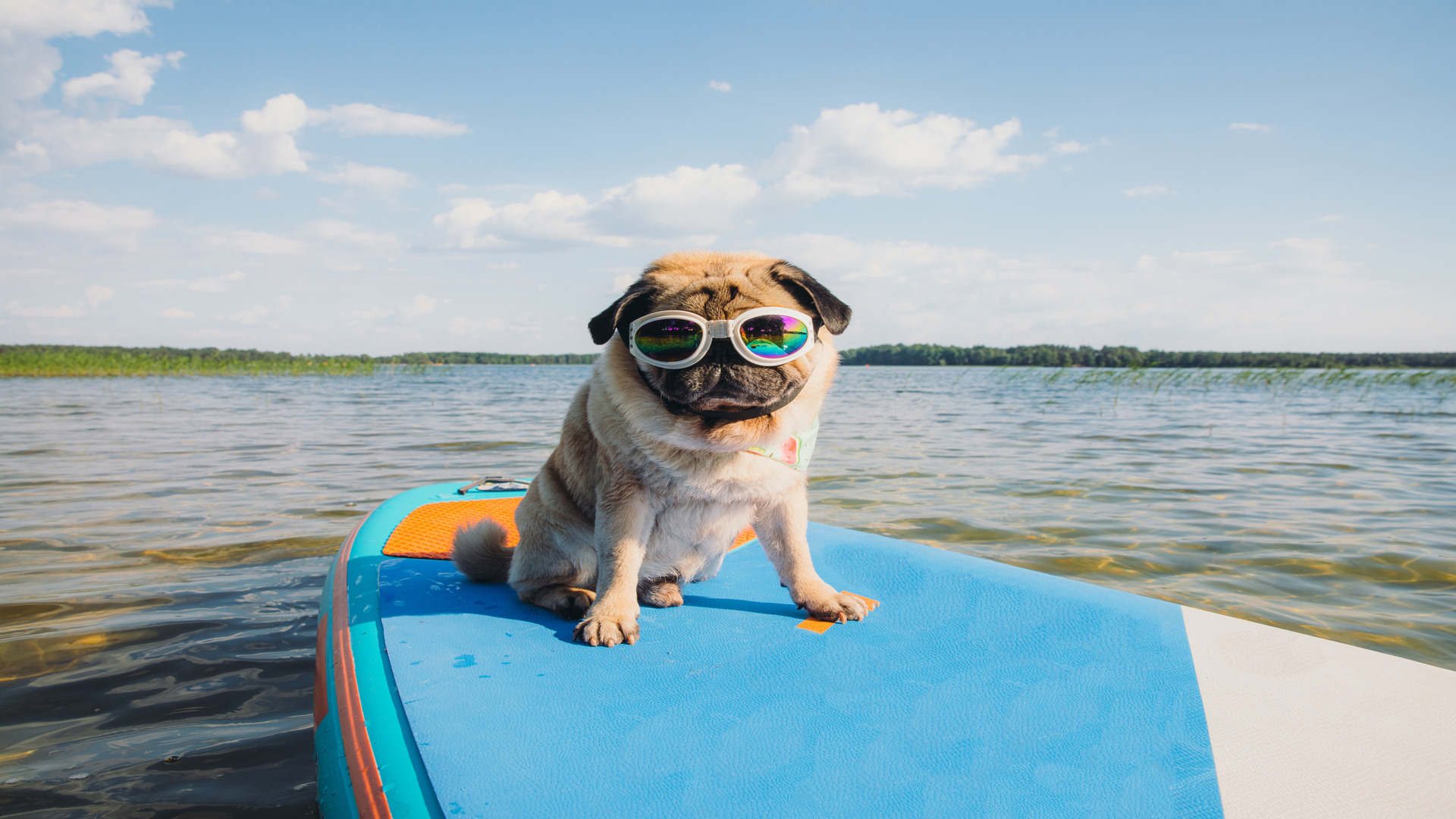
Many people now enjoy paddleboarding with a dog. It's a super way to bond, exercise, and teach your dog new skills. I'm a qualified dog behaviorist and did paddleboarding with my reactive dog, Poppy. and it helped build her confidence.
I helped a few people learn how to prepare their dogs before they took to the water. Done correctly, most dogs enjoy paddleboarding with their owners.
There are some vital steps to take before paddleboarding with your dog. For instance, did you know that not all dogs can swim? From the offset, getting your dog used to the paddleboard must be fun, and choosing the best dog treats can help with training.
This feature is a step-by-step guide to paddleboarding with your dog so you can both enjoy this fun pastime together for many years.
What you will need for paddleboarding with a dog
Before heading to the water, here are the three things you will need to make paddleboarding safe for your dog.:
Choose the right size paddleboard
Whether your dog is a chihuahua or a German shepherd, you need a long, wide board. Choose a board at least 32" wide and 120" long to provide more stability for you and your dog.
PetsRadar Newsletter
Get the best advice, tips and top tech for your beloved Pets
Consider your and your dog's height and weight. The larger the dog, the more unstable a board could be if it is the wrong size.
The board should have a good surface grip
Most paddleboards don't have sufficient grip for a dog's paws. If your dog slides off a few times, he will become reluctant to participate in paddleboarding. Ideally, choose a stand-up paddleboard (SUP) with a full deck pad, so your dog has a good grip. It helps to keep your dog's claws trimmed.
If you already have a paddleboard without an extended pad, another option is to attach a bath mat with suction cups or a yoga mat.
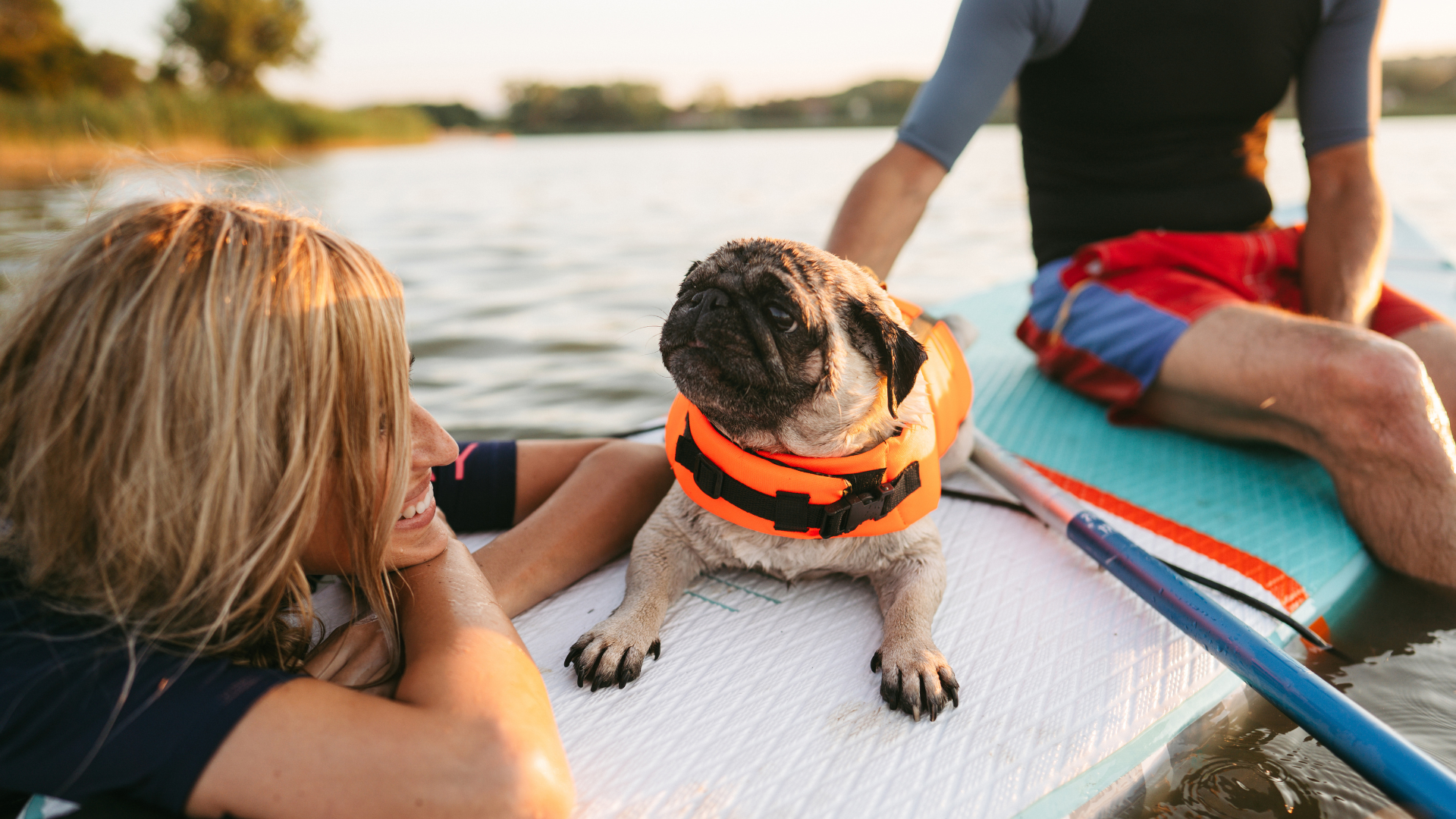
A floatation device for your dog
Even if your dog is a good swimmer, wearing a doggy life jacket is best. Get him used to wearing it at home before you venture into the water.
Outward Hound Dog Life Jacket | Amazon
Available in six sizes with adjustable straps, this dog life jacket provides maximum bouyancy and has a front float for additional head and neck support.
How to prepare for paddleboarding with a dog
Ensure your dog can swim
Not every dog is a natural swimmer. I took Poppy to a doggy hydrotherapy center for practice sessions. She was a great swimmer, but our other dog, Luna, was not. It took several sessions for her to gain confidence in the water.
Here are 32 dog breeds that are made for swimming.
Get your dog used to the board
Paddleboarding is a new experience for your dog, so take the time to get him used to everything about it.
How to paddleboard with a dog
Now you've done the initial training at home, it’s time to head out to the location. Keep paddleboarding sessions short for the first few times out, and praise your pooch when he stays on the board. Follow these five steps:
1. Have someone hold your dog as you go out on the water. Don't go too far; connect frequently with your fur baby on the shore by calling his name.
2. Hold the board in a few inches of water and ask your dog to get onto it and sit.
3. Walk the board in shallow water and treat your dog if he stays on the board, but don’t restrain him if he wants to get off.
4. When your dog is OK with the first three steps, get onto the board with your pup. Staying on your knees at first may be best for better balance.
5. Stand on the board with your doggo in a position that helps him balance and makes it easy for you to paddle without hitting him. Small dogs might be happier sitting near the nose of the board, and bigger dogs sitting or lying between your feet, so their weight distributes across the board.
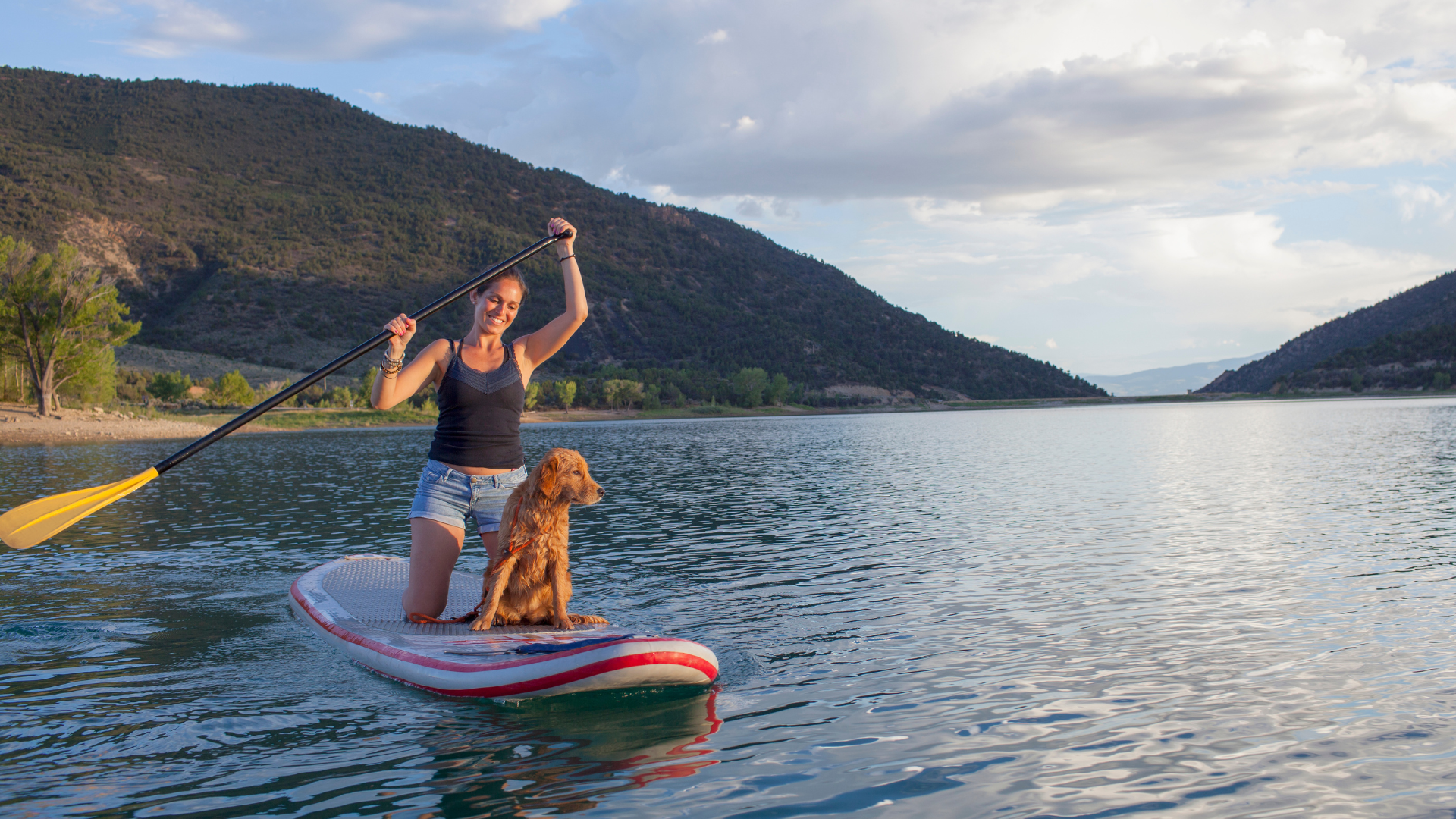
How to keep your dog safe when paddleboarding
1. Ensuring your dog's safety if he falls off
Be prepared that your dog may jump off at first, so he must wear a life jacket to keep him safe. Your dog's leap may unbalance you, so ensure you are away from hazards like boats and in deep enough water not to hit the ground. You can help him back onto the board by grabbing the life jacket handle.
2. Teach your dog not to drink seawater
If you plan to paddleboard on the sea, teach your dog a leave command so he doesn’t drink seawater. It could cause dehydration or sickness if your pup drinks too much. Always bring fresh water and a dog bowl to your paddleboarding sessions.
3. Bring a pet first aid kit
A pet first aid kit (like this one from Amazon) is essential and can provide a temporary fix if your dog has a minor accident.
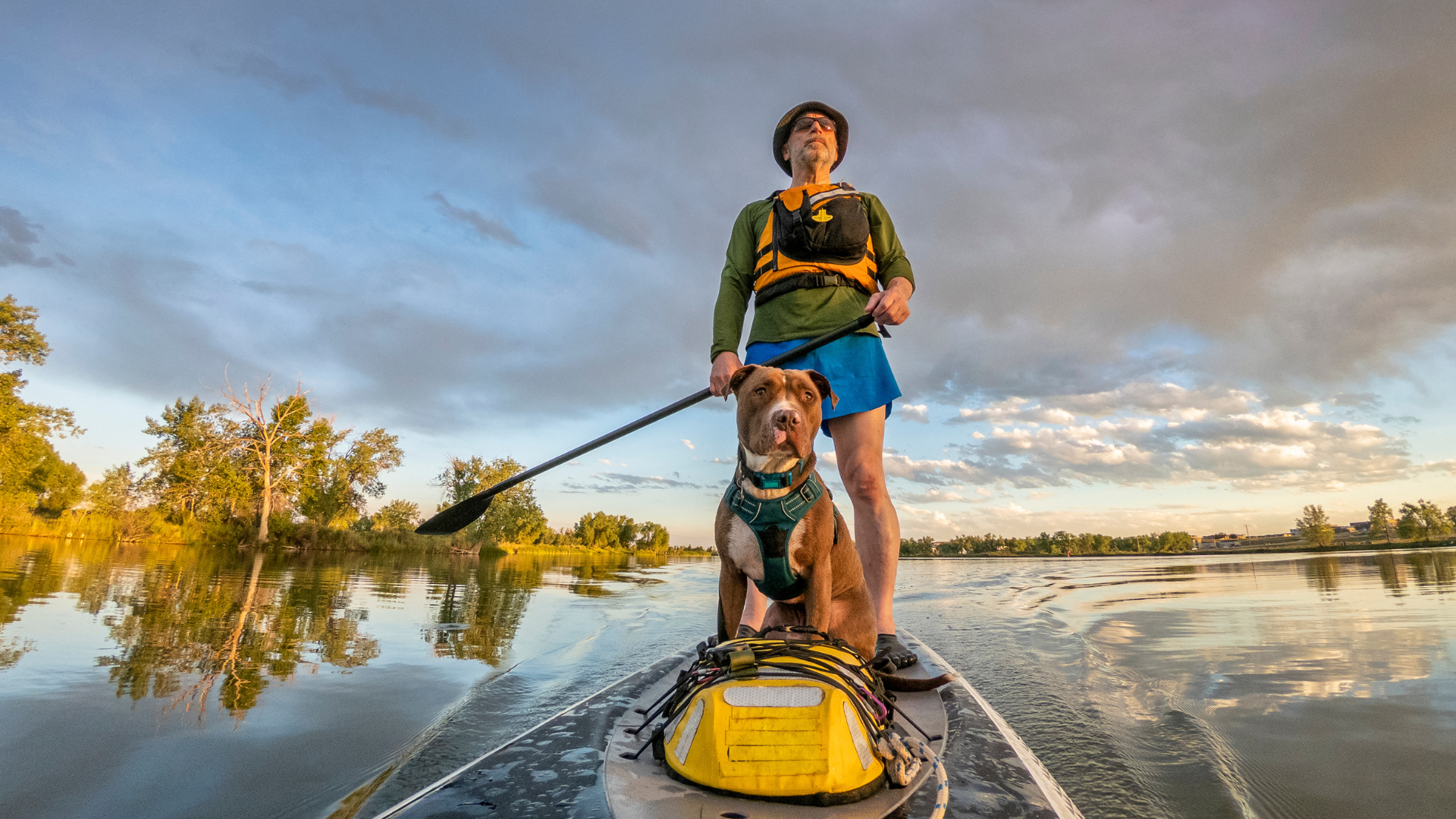
4. Consider using sunscreen for your dog
Sunlight reflects off the water, so any exposed areas, such as a dog's tummy, could get sunburnt. Buy a pet-specific sunscreen and apply it to any exposed areas and pink noses. On hot days, keep paddleboarding sessions short.
5. Rinse your dog after paddleboarding
If you're paddleboarding in seawater, it's advisable to rinse the salt water off after paddleboarding sessions and use a wet cloth to clean inside your doggos ears.
6. Be aware of hazards on the beach
Hot sand can burn your dog's paws. You can get doggy boots to prevent this issue or carry your woofer. Look out for sea creatures like jellyfish.
Paddleboarding with your dog is fun. If you want more ideas for having fun with your pooch, read 32 ways to build more fun into your dog’s routine.
Icelandic+ plus cod & salmon combo bites
Always praise your dog for good behavior. Your furry friend might enjoy these delicious treats for his paddleboarding efforts.

Jan is a dog behaviorist and writer living in the Cotswolds, UK. She has shared her life with dogs for over fifty years and is fascinated by behavior. She enjoys helping people better understand their dogs to develop a deep bond and enjoy time together. Jan particularly enjoys working with impulsive and reactive dogs as her legacy from helping Poppy, her rescue Weimaraner cross overcome fear reactivity.
